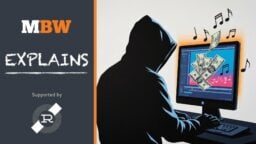In a bid to weed out copyright infringement in the music industry, record labels in the US are now targeting artificial intelligence-based music extractors and mixers online.
Record label body the RIAA, which has over 1,600 member labels including the three majors, lodged its 2022 Review of Notorious Markets for Counterfeiting and Piracy on October 7 with the United States Trade Representative.
The RIAA added AI-based extractors and mixers that allegedly copy the vocals, instrumentals or other portions of a sound recording and generate remixes “to be very similar to or almost as good as reference tracks by selected, well known sound recording artists”.
“To the extent these services, or their partners, are training their AI models using our members’ music, that use is unauthorized and infringes our members’ rights by making unauthorized copies of our members works.”
RIAA
“To the extent these services, or their partners, are training their AI models using our members’ music, that use is unauthorized and infringes our members’ rights by making unauthorized copies of our members works,” the RIAA said.
The files that these services produce are either unauthorized copies or unauthorized derivative works of the labels’ copyrighted music, the organization says as it identified three websites that allegedly serve as music extractors.
They include Acapella-extractor, which amassed 3.2 million site visits in the last 12 months; Remove-Vocals, which had 2.6 million visits in the past year; and Songmastr, which recorded 32,000 visits in the last six months since its launch.
All three sites are registered by Toronto, Canada-based Contact Privacy Inc.
Acapella-extractor and Remove-Vocals generate their revenue from donations and fees, while Songmastr charges fees for its services.
Songmastr’s selection of reference tracks includes several RIAA member songs including Get Lucky by Daft Punk, Bad Guy by Billie Eilish and Cardi B’s Bodak Yellow, RIAA said.
“These services harm U.S. artists, songwriters, record labels, and music publishing companies.”
RIAA
These AI-based music extractors are just among a list of websites and software that the RIAA identified as counterfeiters in the music industry. The group also has a list of several torrent sites, YouTube stream-ripping sites, music download websites, cyberlockers, and unauthorized short-form video services that it says violates copyright rules.
“These services harm U.S. artists, songwriters, record labels, and music publishing companies by disseminating music, or derivative works thereof, without authorization and without providing any compensation to the creators and owners of the music, and artificially distorting the market value of the music, thereby reducing the compensation to the creators and owners from licensed services,” the RIAA said.
The RIAA appreciates that the “United States encourages owners and operators of markets reportedly involved in piracy of counterfeiting to adopt business models that rely on the licensed distribution of legitimate content and products to work with rights holders and enforcement officials to address infringement,” it added.
The group noted that the music industry contributes $170 billion to the national economy and supports 2.47 million jobs, accounting for over 236,000 businesses in the US.
In 2014, the Institute for Policy Innovation concluded that global music piracy causes $12.5 billion of economic losses every year and leads to the loss of 71,060 US jobs, $2.7 billion in workers’ earnings, and $422 million in tax revenues.
“As an industry, we have lived with street piracy for years. Similarly, there will always be a degree of piracy on the Internet. It’s not realistic to wipe it out entirely but instead to bring it to a level of manageable control so a legitimate marketplace can really flourish,” the RIAA said in a Q&A in 2014.
The RIAA’s fight against copyright infringers led to the shutdown of a number of sites including YouTube-MP3.org (YouTube to MP3) in 2017 and torrent site Rapidshare in 2015.
“Music piracy is very much still alive and kicking, and that stream-ripping is now responsible for a mammoth proportion of the overall piracy problem,” Simon Bourn, Head of IP and Litigation at PRS for Music, said in a 2020 report.
Music Business Worldwide





